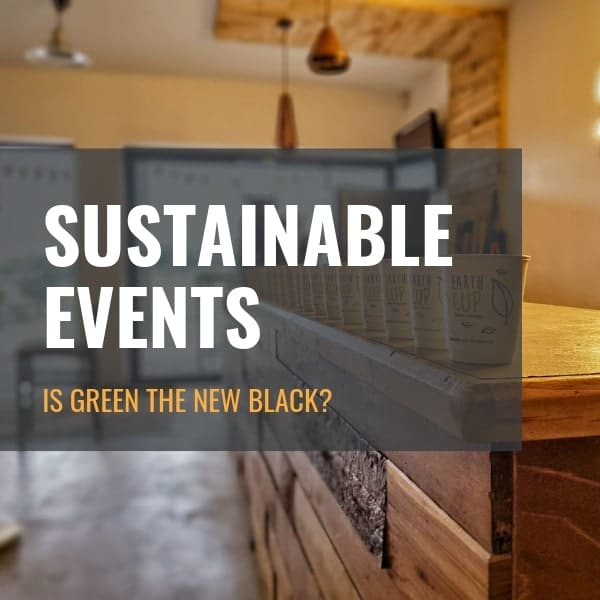There is a growing consciousness and movement toward being eco-friendly, and it’s everyone’s responsibility to take this seriously. So we wanted to take a moment to unpack a bit more about the important topic of sustainable events, what exactly “green event planning means” and share our understanding of how sustainability can continue to make its way into inspiring event management.
Jawbone Brand Experiences is a leading marketing activations agency based in South Africa. We create on-the-ground experiences for our clients’ and their customers. Want to chat about environmental and eco-friendly events? Let us know.
WOAH, WHAT DO YOU MEAN AN “ECO-FRIENDLY EVENT”?
Sustainable event management is defined as the “process used to produce an event with particular concern for environmental, economic and social issues. It incorporates socially and environmentally responsible decision making into event planning, organisation, implementation and participation”. It could be anything from an indoor corporate lunch, to an outdoor festival or a sports event.
SUSTAINABLE EVENTS: 5 THINGS TO CONSIDER
1. DIGITISE YOUR EVENT COMMS
Go paperless with your comms, invites, receipts and programmes. Send e-tickets or better yet, create an app with any related event or company info. Going digital not only saves on your carbon footprint and costs but allows for seamless updates of schedule changes. Another benefit of managing your comms in an eco-friendly way, is that you’re able to broaden a database or encourage more engagement with your brand and give a direct way for people to connect with any specific platforms, even beyond your event.
2. LOCAL SUPPLIERS ARE LEKKER
Green event planning means giving back to the environment and your local community. When sourcing suppliers for an event, support local businesses all the way. Doing so shows an investment in your immediate community and stimulates economic growth. Consider local produce, local performers, artists or artisans or even incentivising local people to assist in the running of, cleaning up and marketing of your sustainable event.
3. NO TRACE. NO WASTE.
Waste is a big problem these days, that’s why one of the most prevalent trends in sustainable event management is to ensure that you leave your environment as you found it, or better. Make sure guests have easy means of recycling any rubbish and plans in place to dispose of these to recycling depots. Another way to ensure ∫ is to be accurate and specific about catering needs, but if you do happen to have leftovers or surplus supplies, how about donating them to a local community in need?
4. TRANSPORT AND LOCATION
Think about how the location of your venue will impact your carbon footprint. This doesn’t only apply to your attendees getting there, you’ll also need to consider how far suppliers will need to travel in setting up. Shuttle services, carpooling incentives or planning an event near easily accessible public transport routes is another good place to start.
5. POWER AND PRODUCTION
With a bit of research and planning, you’ll be able to source suitable renewable resources to help you cut you power usage (and your costs). Some of the best green music festivals find ways to bring incredible experiences to life without having to use excess power, for example the Wood Festival in the UK is “entirely powered by renewable energy sources such as solar panels, biodiesel and wood burning stoves.”
GO GREEN OR GO HOME
Social responsibility doesn’t stop at companies becoming eco-friendly. An eco-first approach should be inculcated as part of policies and process; it should be an ongoing endeavour that includes getting all key players in the process to play their part. Don’t think of it as once-off sustainable event, think of it as a sustainable event management system that has the potential to connect communities and make a real, tangible difference.[/vc_column_text][vc_column_text]If you’d like to know more about what we offer at Jawbone, take a look at our range of event management services.





